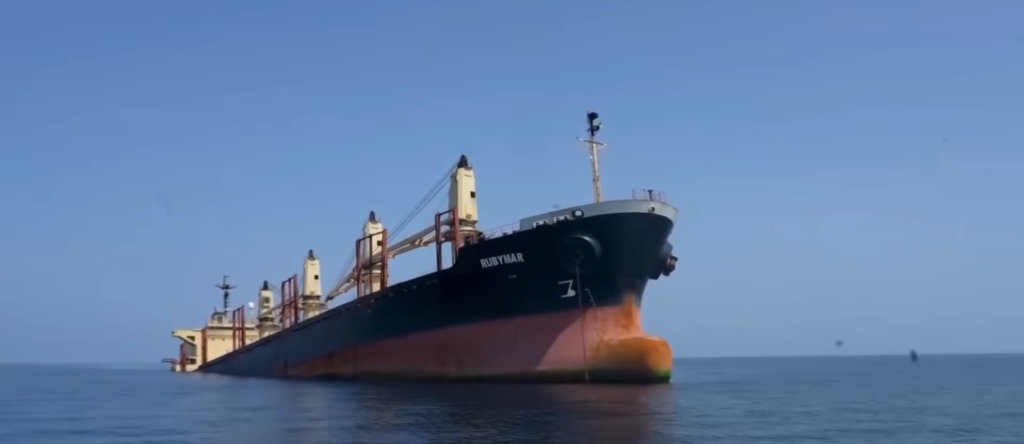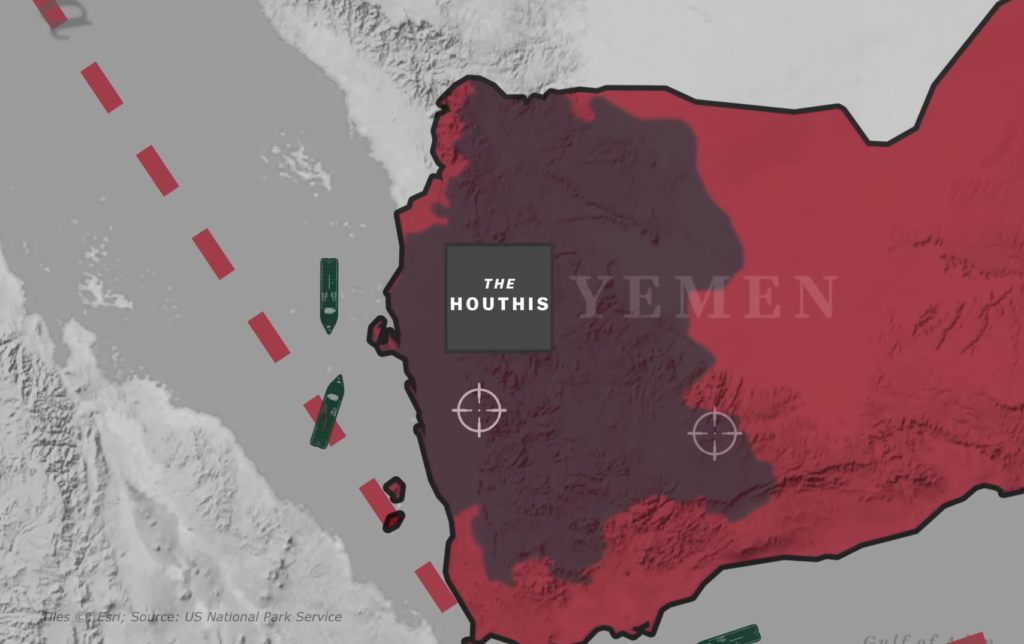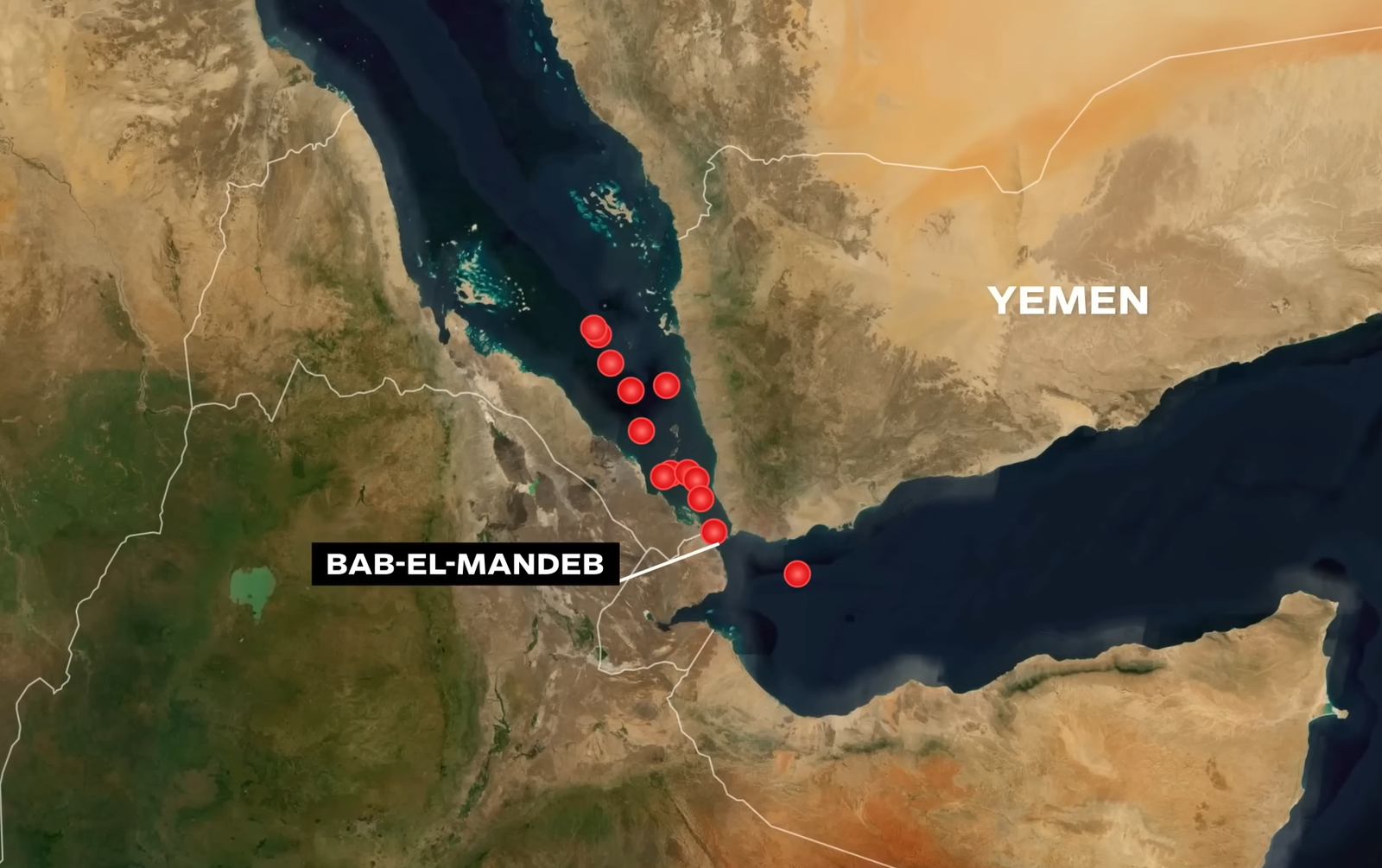There have been multiple news reports about ship attacks in the Red Sea, attributed to the Houthi rebels in Yemen. These incidents have drawn international attention to the ongoing conflict and humanitarian crisis in the region. There are multiple factors contributing to red sea attacks along with Yemen’s crisis filled history and political dynamics shaping its present.
The Houthis, a rebel group controlling much of Yemen, have been targeting ships in the Red Sea since November 2023. These attacks, including the sinking of the British-owned cargo ship MV Rubymar, are allegedly a response to Israel’s actions in Gaza. It reflects the Houthis’ solidarity with Palestinians.

History of Yemen
Yemen has been going through civil war for over nine years, leading to one of the world’s worst humanitarian crises. The conflict pits various factions against each other, including the Houthi rebels, who seek to challenge the established order and assert control over the country. To understand the root cause of Red Sea ship attacks, we must get context of Yemen’s history.
For centuries, Yemen’s most populated region was ruled by Zaydi Shia Muslims. However, in the 1960s, a military revolution led to the establishment of North Yemen, a republic that marginalized the Zaydis. This marginalization paved the way for the emergence of the Houthi movement, led by Hussein Al-Houthi, who sought to challenge the status quo and resist external influences, particularly from Sunni-majority Saudi Arabia.
The Houthis’ grievances against the government, compounded by economic hardship and political repression, culminated in protests and militant attacks. Amidst this turmoil, President Ali Abdullah Saleh’s regime crumbled, leading to the absence of power that the Houthis sought to exploit. In 2014, they seized control of the capital, Sana’a, and expanded their influence across the country.
The conflict escalated further when a Saudi-led coalition intervened to support the internationally recognized government of Abd-Rabbu Mansour Hadi. The ensuing violence led to the humanitarian crisis, causing widespread suffering and displacement.
While international efforts have been made to broker ceasefires and peace deals, the situation remains uncertain. The recent US-UK-led coalition airstrikes targeting Houthi-controlled areas have only worsened the plight of Yemenis, further entrenching the conflict.
Control of Red Sea
Despite their lack of international recognition, the Houthis have managed to maintain control over significant portions of Yemen along with areas around the Red Sea. Their strategic alliances and populist rhetoric, particularly regarding the Palestinian cause, have garnered support among the Yemeni population, enabling them to consolidate power.

However, it’s essential to recognize that the Red Sea attacks serve a dual purpose for the Houthis. While allegedly driven by geopolitical motivations, such as supporting Palestine and challenging external powers, they also serve to improve the group’s legitimacy and reinforce its grip on power domestically.
Read More:- Moscow Terror Attack: A Concert Hall Tragedy Unfolds
Conclusion
In conclusion, the Red Sea ship attacks are not just isolated incidents but result of Yemen’s complex political landscape. Understanding the underlying grievances and power dynamics is crucial to finding lasting solutions to the red sea ship attacks. As international stakeholders navigate this challenging terrain, it’s imperative to prioritize the humanitarian needs of Yemenis and bring a stop to red sea attacks.
Do you want to explore the world of anime? Go to Pop Media Pulse
